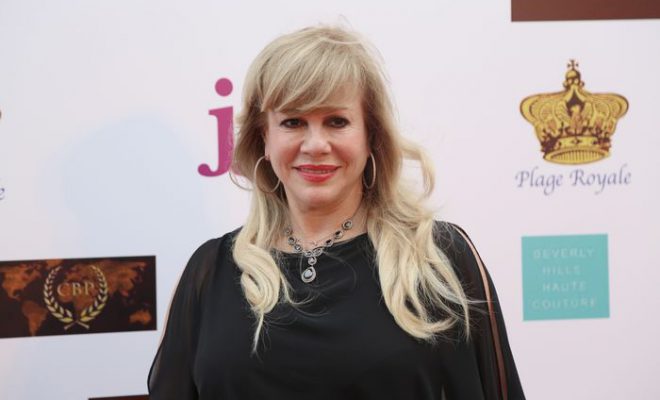
Interviews
Daphna Edwards Ziman – Cinémoi
By: Lisa Steinberg
Q) What are the recent issues you are focused on?
A) I’m working with the FCC to convince the major giant content providers that room must be made for minority channels, independent channels and gender diversity.
Q) What originally impassioned you to begin to fight for diversity in TV?
A) The reality is that when I was six years old my grandfather gave me the Statue of Liberty as my birthday present. He said, “You must go to this country because in this country everything is about freedom.” He and many members of my family were impacted by the Holocaust so freedom in America (freedom of speech, thought, communication and slavery/oppression) is like a beacon of light for the whole world. When I started to see the decline of the value of content on television, especially with reality shows, it started to get under my skin to see women projected as sex symbols. It wasn’t really what the personification of what America stood for. When I saw that, it really bothered me and I started thinking about all the images of women across the years that gave us the dream and the hope that we can actually emerge as human beings who are cherished (especially because we are all mothers, sisters and daughters). I just felt that the way we were projected on the television screen was just so unbecoming that I wanted to do something about it. I realized that the market place was filled with the kind of channels that nobody wants to watch and it does not behoove the next generation. So, I researched it and started looking into what one would could if one wanted to make a difference. The first thing that came to mind was raising the bar on the quality of content. We needed to deliver content that was multi-genre and multi-choice oriented. We needed to personify the image of women with the quality that their children or girls or boys could look up at their mothers. I wanted to think about the impact that American television had on me when I was a young child growing up abroad and why I wanted to be an American. I realized the American communication media was the best foreign policy America ever had because it was the mecca of communication and a beacon of light to everyone around the world.
Q) What did you decide could be done differently with your network?
A) I feel that the world needs that kind of hope or influence – a culture that can mean individualism and dreams. I was afraid that was going away so I wanted very badly to show that we can air award winning movies (vintage to modern) that have real quality in them, real stories and real characters. We could show documentaries that have an impact. We could show green documentaries that are not preachy, that are exquisitely shot with excellent cinematography about one being or a group who are heroes because they are trying to help the planet. I realized the one thing I wanted to do more than anything was inspire and aspire generations to look at America from a very unique point of view – the potential that America has always had – to influence people in a positive way.
Q) What are some of the challenges that you have faced starting this network, solo and as a woman?
A) Not just as a woman, but we wanted to standup for independent journalists. We felt that innovation comes from independent channels or sources. Hat we realized very quickly that media giants are robbing people from all the benefits because if you have a very successful channel that the inclination nowadays to demand from the distributor to put on multiple channels. If anyone asked the distributors if they wanted to keep all these channels they would say absolutely not. But they need the other channels so they have to swallow that. So, that is at the crux of independent, minority channels. The reality is and what the FCC is trying to do is to stop the media giants from forcing bundles down the throats of the distributors because ultimately the public then has to buy bundles. The public may not want the bundles and ordinarily they don’t. Then, there is also vertical integration, which is a distributor decides the only way they can fight is to create a whole bunch of channels themselves. That basically shuts down innovation because independent channels don’t’ get a seat at the table. It also robs the independent channel from the advertising to be able to survive. It makes it impossible as well to be able to have an argument about diversity. So, anything that has made America the most innovative country in the world is being stopped. If you look at Taiwan, for instance, the reason they have suffered culturally so badly is because the Taiwan television and satellite and telecom media is controlled by six entities. So, there has been no growth. When new content is created they simply trade the content. That’s the problem we have right now. The reality is the consumers are continuing to experience higher and higher prices for services and yet there are so many barriers for new channels and a reduction in the domination and it is not fair to the public.
Q) With the recent political events does that have any effect on your programming and funding?
A) I think the election is very much a personification of the poor content that has been put upon the public for a long time now. All the reality TV that I have spoken about sort of have the impact of dumbing down the American. It’s so based on sensationalism that people are sort of looking at TV and any issue for the adversarial point of view. Everyone thinks because there is a point-of-view there has to be an adversarial point of view. They can’t think anymore except for one point of view. For instance, in the election it has been so much about degrading the other person. It is almost a continued personality contest. In fact, we’re electing the leader of the free world, which is extremely serious. And if you really think in terms of how many of the media/news have focused on the issues today…Women are being incarcerated double the amount of men, predominately because of drugs and alcohol. It is a serious cancer to our society. Children in foster care have consequently increased and kids are being put into foster care because of abuse and neglect. They are put into a broken system and everyone makes money on their back. They are moved from home to home and school to school. Yes, there are some good foster parents. I’m a foster parent. I adopted my daughter, but many of them do it for the money. It’s sort of like a substitute for welfare. The reality is that 78.8% of all inmates in the penitentiary come from the child welfare system. It’s a huge statistic and means that our country is breeding criminals instead of contributing citizens. America is now the center of sex trafficking in the world and most of the girls are juveniles. I have been fighting with Congress for a long time to call juvenile prostitutes “victims” because they are trafficked and not victims, but yet they are filling up juvenile homes. These are issues that nobody talks about. Single mothers that are divorced are on a train to poverty because they can’t afford childcare. This is what I want to remind. We don’t try to put on documentaries that are so horrifically negative that they will terrorize our viewers. We try to open their eyes in a positive way to show what can be done. That’s why I think what we do with Cinémoi is so crucially important for our country and for women. I will not rest until I see this country and our government pay attention to the mothers, daughters and sisters in this country.
Q) What are some upcoming programs on Cinémoi that you are trying to integrate more?
A) We have this amazing series that we are about to show. We have a crew that have gone around the world and found in these obscure places these incredible talents in particularly the area of culture. For instance, in Africa we found a group of children who have been supporting themselves with fashion created out of potato sacks. They are so amazing that they have become a tourist attraction. We try to focus on heroism around the world, people that are not usually acknowledged. This series is so amazing. People who see it just love it. One of the programs we are about to show are incredible stories about children who want to go to school no matter what. Some of them have to ride a bike for two hours in India to get to school and it is girls because they want to be educated. In Africa we found these kids who walk for five hours to school every day. There are incredible people in Guatemala that have been building preschool centers and Israel has helped them because they are very good at having pre-fab buildings. They build these in remote villages and have been able to get Sesame Street, Barney and other programs in Spanish. They bring the children to these centers and volunteers from the villages or universities here go over there to teach kids how to read and write. Those are the kind of things we show and it is so compelling because it shows one person wanting to make a difference and what they go through to make a difference. I’m very proud of that.



You must be logged in to post a comment Login